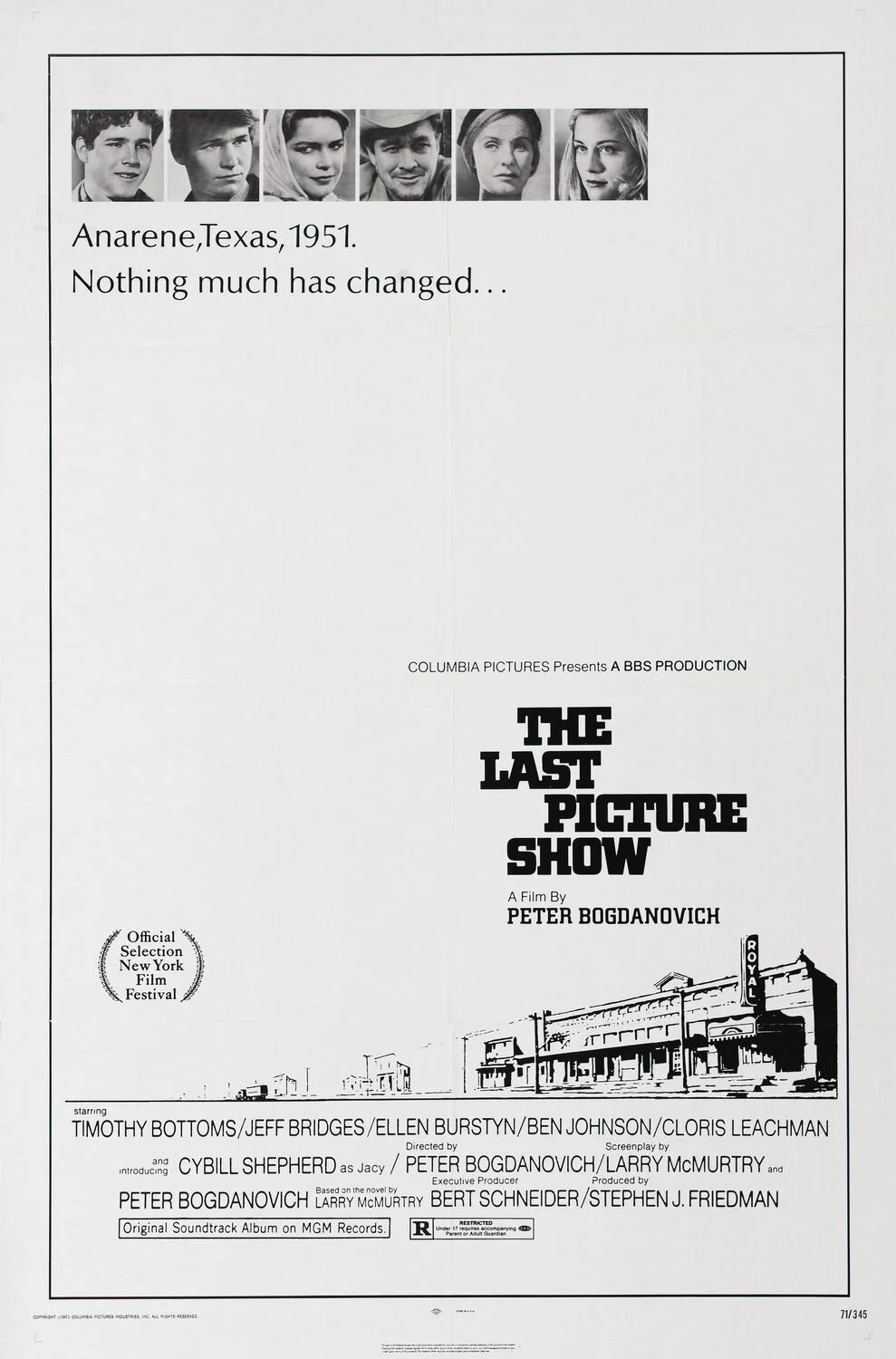The Last Picture Show (1971)
Written by Larry McMurtry & Peter Bogdanovich
Directed by Peter Bogdanovich
1998 List Ranking: NA
2007 List Ranking: 95
As we approach the final quarter of this list, there are less and less films that are unknown to me, even by name; after The Last Picture Show, there is only one more that I’ve never heard of before, coming up in just a few weeks. As such, I was interested to get into this film for which I had no reference for. Surprisingly in black and white, this film deals with some interesting thematic elements, even if, on the surface, there isn’t a ton of plot.
Sonny (Timothy Bottoms) and Mrs. Popper (Cloris Leachman)
The Last Picture Show concerns a small, forgotten Texas town in the early 1950’s. Here, the seemingly quiet and sleepy town belies the desperation festering under its surface, as high school seniors Sonny and Duane come of age and grapple with sex, betrayal, and death. Sonny dumps his girlfriend and soon enters into an affair with the older Mrs. Popper, wife of Sonny’s coach, but soon falls for Jacy, the sometimes girlfriend of Duane. All the while, the town slowly succumbs to the encroaching rot of time, as it begins to metaphorically stand still and the inhabitants begin to drift away, either of their own volition or their final journey.
Timothy Bottoms
The acting in the film is very subdued, but I think the two strongest are Timothy Bottoms as Sonny and Cloris Leachman as Mrs. Popper. Bottoms is fairly stoic throughout the film, but he conveys that nervous energy of a young man about to step forward into an uncertain world rather well, particularly in his affair with Mrs. Popper. It’s comparable, in part, to Dustin Hoffman in The Graduate, and I feel that Bottoms nails those qualities better here.
Cloris Leachman
Leachman actually has very little screen time, and her initial attempts at seduction are rather pitiful. However, there are three important scenes for her. First, after the affair has been on-going for some time, we see her brighter and bubblier than we have yet: her dark and dowdy clothing has given way to brighter, lighter clothes. Her hair is different. She seems more upbeat. Later, as she waits for Sonny to arrive for a tryst, we see her looking almost effervescent; when he does not show, we see her again wordlessly devastated, her excitement dashed. Finally, when Sonny finally visits her again after weeks have gone by, we see her broken down, dejected. So much of this arc is communicated wordlessly by Leachman, and it’s a quiet tour-de-force for a woman I know only as Frau Blucher (NEIGH!).
The main feeling I take away from this film is desperation. The town is on its last legs and its population is desperate for anything to happen. Every person seems to be infected with a certain ennui, one that keeps everyone rooted in place while making them wish for more. There’s a desperation to break free and to go forth, to obtain more out of life than the hand they’re currently dealt.
In a way, it feels rather timely to the COVID-19 pandemic. For too long, we have been stuck at home and realizing the small things we took for granted (I say “we”, but I could just be speaking for myself; I suspect, however, that I’m not). Due to the circumstances of the pandemic I am stuck at home, as many of us are, and yet daily I find myself desperate for the elements of human interaction I didn’t know I would miss. It creates a desperation and a depression when I realize that there is still a ways to go. Obviously, the two situations, between the film and this terrible pandemic, are not at all comparable, but there is a small kinship that is felt.
Timothy Bottoms is joined by Jeff Bridges and Cybill Shepard
The film is really great at capturing the realism of young adults, in a way that felt more real than something like Rebel Without a Cause. It’s somewhat difficult to put my finger on, but I never once thought of the actors as adults playing high schoolers; the love games they play and their depictions of lovemaking feel incredibly realistic (without being overly graphic). We can all remember our first times and the nervousness and quasi-absurdity of the moment is deftly captured here.
I went into this review fully expecting to pick apart the film for its lack of a true plot, but in the end I almost don’t feel like I have to. Whereas other films dismiss realism in an attempt to shoehorn in the various plot points, The Last Picture Show gives us a peek into a slice of life in a decaying town, a dead end for the dreams and aspirations of those who live there. I can’t say that it’s a great film, but it definitely feels better on reflection than immediately after its conclusion.
FINAL GRADE: B-






